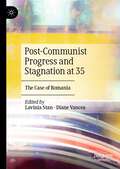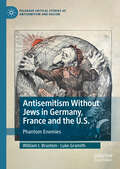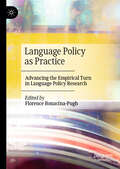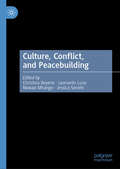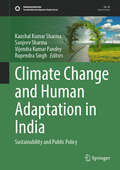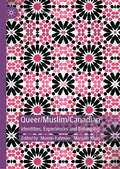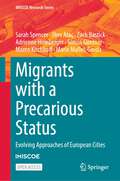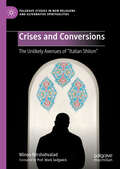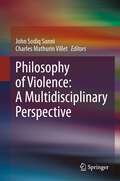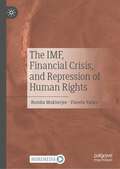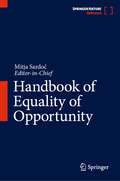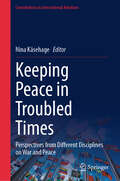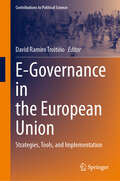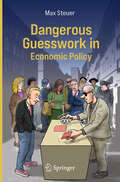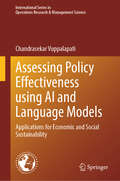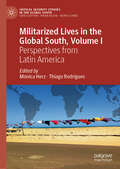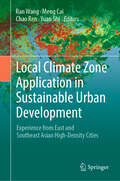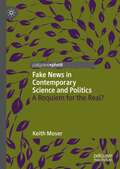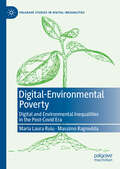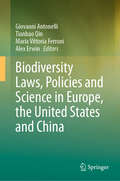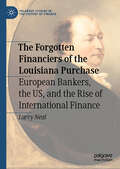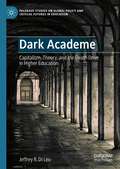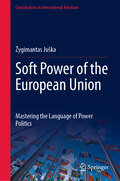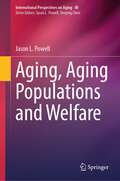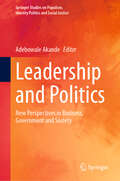- Table View
- List View
Post-Communist Progress and Stagnation at 35: The Case of Romania
by Lavinia Stan Diane VanceaThis book examines Romania’s efforts to consolidate liberal democracy and market economy, as desired by the generation who effected change in 1989 and required by the European Union. The ousting of Nicolae Ceausescu, leader of an autarchic and nationalistic dictatorship, underscored the limitations of politically engineering change when rule of law is weak, institutions are misused, and intolerance and cheating are prevalent. Despite initial hopes, Romania’s transition combined progress and stagnation, missed opportunities, detours, unintended consequences, and success. The contributions illustrate the tenuous relationship between continuity and change in a country that is yet to catch up with its neighbors.
Antisemitism Without Jews in Germany, France and the U.S.: Phantom Enemies (Palgrave Critical Studies of Antisemitism and Racism)
by William I. Brustein Luke GramithWhy does antisemitic messaging strike a chord in certain communities without Jews but fall flat in neighboring communities equally without Jews? This book focuses on antipathy towards Jews - expressed through successful electoral campaigns where a candidate or political party championed antisemitism - in communities located in three different nations where the Jewish population had virtually no history of interaction with the resident majority population of non-Jews. The cases are: the election of antisemitic deputies in the 1893 German Reichstag Elections from eastern Saxony; the election of a slate of antisemitic deputies to the French Chamber in 1898 from the southwestern French department of the Gers; and the significant proportion of votes for the antisemitic campaign of Gerald B. Winrod in the U.S. Senate Republican Party primary election in 1938 in Kansas. Each of these examples illustrates the existence of heightened levels of antisemitism in cases where few, if any, Jews had engagement with the majority population.
Language Policy as Practice: Advancing the Empirical Turn in Language Policy Research
by Florence Bonacina-PughThis edited book brings together original contributions from scholars working across Language Policy and Planning to advance the recent 'Empirical turn' that has taken place in the field. All the chapters in the volume show how Language Policy can be conceptualized 'as practice' in a variety of domains, ranging from the home to the workplace, schools, and higher education. The authors also suggest further theoretical, methodological, and empirical developments for the discipline in light of this epistemological shift. A Foreword and an Afterword shed light on the theoretical and empirical lineage of this volume and show how this book contributes to the humanization of Language Policy research. This book will be of interest to scholars and post-graduate students working across Language Policy and Planning, Language in Education Policy, and Family Language Policy, as well as those in adjacent fields including Education Policy, Classroom Discourse, Linguistic Anthropology, Sociologyof Education, and Multilingualism.
Culture, Conflict, and Peacebuilding
by Leonardo Luna Jessica Senehi Christina Beyene Nkwazi MhangoThis book explores the complexity, multiplicity, intersectionality, and dynamism of cultures in connection with critical and emancipatory peacebuilding. It includes diverse voices to emphasize local and everyday peacebuilding within a narrative that links the personal to the political. It is a valuable resource for students, educators, and practitioners in peace and conflict studies, cultural studies, sociology, and related disciplines.
Climate Change and Human Adaptation in India: Sustainability and Public Policy (Sustainable Development Goals Series)
by Sanjeev Sharma Kaushal Kumar Sharma Vijendra Kumar Pandey Rupendra SinghThis contributed volume presents an attempt to understand climatic variability and induced risk to livelihood of communities and to offer insights on how catastrophic conditions and crises can be mitigated through public policy interventions. The case studies herein offer insights into different spheres and domains affected by climate change and present models of adaptation possibilities. The book is divided into three thematic sections. The first contains chapters that deal with assessing the effects of climate change. The second section offers perspectives on adaptation and governance, vulnerability in the context of sustainable livelihoods. The third and last section looks at Policy and Governance, with respect to climatic change adaptation and mitigations. The lessons contained in this volume are useful to a wide audience including research scholars, students, policymakers, and planners.
Queer/Muslim/Canadian: Identities, Experiences and Belonging (Global Queer Politics)
by Momin Rahman Maryam KhanThis book presents original qualitative research on the lives, identities, and experiences of queer Canadian Muslims and is the largest study to date on this population. Presented through a queer intersectional framework, the volume contains core evidence-based chapters on the lived experience, as well as the transnational politics of Islamophobia and LGBTQ+ rights promotion, the research on Muslim attitudes to queer issues, and the representations of queer Muslim issues within Canada. Key issues covered include: queer Muslim organizing, how queer Muslims reconcile faith, sexuality and gender identity through affirmative and liberatory frameworks and actions, how Muslims in Canada respond to sexual and gender diversity. The contributors also lay out future academic and research possibilities for further investigation and for the development of equity practices for recognizing and challenging the oppressions suffered by queer Muslims, addressing the discussion to queer Muslims as well as mainstream LGBTQ+ groups and mainstream Muslim groups.
Migrants with a Precarious Status: Evolving Approaches of European Cities (IMISCOE Research Series)
by Sarah Spencer Simon Güntner Ilker Ataç Zach Bastick Adrienne Homberger Maren Kirchhoff Marie Mallet-GarciaThis open access book is an exploration of city responses to migrants with a precarious status in Europe. It provides new evidence and analysis from research on three cities in Austria, Germany and the UK: Vienna, Frankfurt and Cardiff. The book explores strategies and services of municipal authorities towards precarious migrants and their cooperation with non-governmental organisations (NGOs) in service provision. It focuses on healthcare, education, housing and access to advice; and particular attention is given to the situation of women.The book develops the concept of precarity in relation to migration status, and of horizontal governance arrangements within municipal authorities. It explores the tension between exclusion and inclusion of migrants who have limited rights of access to welfare services, and contributes evidence on the factors shaping municipal policy making, as well as on the framing of rationales for providing access to essential services.
Crises and Conversions: The Unlikely Avenues of "Italian Shiism" (Palgrave Studies in New Religions and Alternative Spiritualities)
by Minoo MirshahvaladThis book explores the phenomenon of conversion to Shi'a Islam in Italy. It thoroughly examines the motivations behind this religious transition and scrutinizes the doctrinal characteristics that Shiism incorporates thanks to the contributions of Italian converts. The text emphasizes the significance of René Guénon’s Traditionalism as a pivotal factor in driving this religious mobility. Additionally, the book delves into the writings of figures such as Julius Evola, who introduced Guénon to Italy, shedding light on Evola’s impact on the youth in the post-World War II era. Furthermore, it evaluates the influence of Henry Corbin on this spiritual journey. To realize this study, between 2018 and 2023, Minoo Mirshahvalad employed multidisciplinary methods that integrated sociology and history.
Philosophy of Violence: A Multidisciplinary Perspective
by John Sodiq Sanni Charles Mathurin VilletThis volume explores the role of violence generally but with specific reference to African concepts and themes, and the significance they have for social redress. The contributors interpret African concepts and themes to include accounts of violence, explicitly or implicitly construed from indigenous axiological resources like Ubuntu or personhood and from those works that are not African in origin but have become central in African moral, political and legal thought, such as Hannah Arendt’s On Violence and Walter Benjamin’s Critique of Violence. The volume contributes to moral philosophy, social philosophy, African philosophy, and political philosophy/theory. It situates itself within the Global South, specifically the African perspective, to explore, articulate, and defend (or even critique) African conceptions of violence. This volume also takes seriously the need to tap into the intellectual resource of the African and diasporic African episteme thruthinkers such as Steve Biko, Frantz Fanon and Reiland Rabaka. It appeals to students and researchers working in philosophy and related disciplines on violence in Africa and the postcolonial context.
The IMF, Financial Crisis, and Repression of Human Rights
by Vineeta Yadav Bumba MukherjeeThis book seeks to answer a number of key questions about the relationship between the IMF, developing states and the impact of financial crises on human rights abuses, including: Why do some but not other IMF-assisted developing states experience the joint outbreak of currency and sudden reversal crises under the Fund’s program?; What are some of the short-term political ramifications of such crises?; Why do human rights violation by governments increase sharply in the wake of twin currency and sudden reversal crisis in some but not all crisis-affected countries?
Handbook of Equality of Opportunity
by Mitja SardočThis Handbook provides an authoritative exposition of equality of opportunity. It presents the different concepts most commonly associated with equality of opportunity, and discusses the many problems dominating the controversies on equality of opportunity at the theoretical, policy or practical level. The chapters give a concise exposition of the different conceptions and basic concepts of equal opportunities. They clarify variables that are part of the 'algorithm of equal opportunities', e.g. opportunity, equality, non-discrimination, fairness, responsibility, chance and choice, excellence, qualifications, effort, talent, merit, desert, inequality, and risk. The idea of equality of opportunity has traditionally been associated with a set of largely unquestioned ideals, and over the last 50 years, it has been at the very centre of the major progressive social changes and firmly entrenched in political rhetoric. Yet, the idea of equality of opportunity is far from unquestionable or unproblematic as the only solid assumption different conceptions have in common is their rejection of fixed social relations but not hierarchy itself. Disagreements over the fundamental principles, criticism over the inefficiency of policies aiming to ensure equal opportunities, and objections to their unfairness, all pose questions that current conceptions answer in different ways. This Handbook examines a wide variety of questions about issues of motivation, procedures, genealogy, taxonomy, and compensation.
Keeping Peace in Troubled Times: Perspectives from Different Disciplines on War and Peace (Contributions to International Relations)
by Nina KäsehageThis interdisciplinary anthology offers both theoretical reflections and empirical data on past, present and possible future war and crisis situations. In addition, against the background of the authors' academic and practical experience in the field of international political observation and consultancy, proposals are formulated for peacekeeping in crisis regions and with regard to extreme environments. Furthermore it addresses sensory and aesthetic perceptions of war and peace. Unlike other books on the subject, this contributed volume seeks solutions for lasting peace from various fields that could help improve quality of life for people around the world – especially in heterogeneous societies, which are often shaken by religious, ethnic or political crises.
E-Governance in the European Union: Strategies, Tools, and Implementation (Contributions to Political Science)
by David Ramiro TroitiñoThis book sheds new light on the future of e-governance in the European Union (EU). Drawing on the first-hand professional experience of practitioners, policymakers, and institutional stakeholders, combined with a sound academic foundation, it offers insights into successful implementation strategies and new tools necessary for efficient e-governance in the European Union. The authors present key topics, e.g. the development of e-services such as e-identity, e-health, e-democracy, as well as e-governance tools for the correct implementation of the Digital Single Market. Furthermore, they discuss the legal framework needed for the implementation of these services, such as data protection, digital competition law, as well as EU contracts in digital environments. Finally, the authors highlight efforts to include ethical standards and European values in the decision-making, while developing a vision for the future use of e-governance in the European Union.Understanding the tools and strategies for a successful implementation of e-governance services, as well as the necessary legal framework, will allow professionals such as policymakers and institutional stakeholders, to improve their performance and achieve better results when working on the development of future e-governance services in the European Union.
Dangerous Guesswork In Economic Policy
by Max SteuerThis book highlights the importance of economic knowledge in government decision-making. Almost every decision and responsibility facing governments involves economic considerations as well as other aspects. Whether it is funding the military, management of the health care system, or taxing appropriately, the issues are too complex and too important to be left to hunch, intuition, and guesswork. A politician who aspires to more than personal power, and wants to benefit the national society, needs good economic advice. Recognizing the need for effective advice and knowing how to find it is itself challenging. This book points the way. A sophisticated overview of economics is the key and a realistic attainment. How does economics work? Is it science? Is it common sense dressed up in jargon? This book provides insight into what is going on in the discipline and why this knowledge is needed. Students intending to study economics can get a head start from this book. Those alreadyengaged can be helped around some awkward corners. The main audience is the general reader. Economic turmoil abounds. Does it look like informed policies are being undertaken? Does the discussion on radio and other media of current problems have the feel and thrust of genuine knowledge, or is it merely spinning out familiar cliches and guesses? Reading this book, the concerned citizen, the reader with curiosity, and the informed voter will enjoy knowing more about effective economic policy.
Assessing Policy Effectiveness using AI and Language Models: Applications for Economic and Social Sustainability (International Series in Operations Research & Management Science #354)
by Chandrasekar VuppalapatiThis volume uses advanced machine learning techniques to analyze government communication to evaluate policy effectiveness. The book develops policy effectiveness foundation models by cohorting historical budget policies with statistical models which are built on well reputed data sources including economic events, macroeconomic trends, and ratings and commerce terms from international institutions. By signal mining policies to the economic outcome patterns, the book aims to create a rich source of successful policy insights in terms of their effectiveness in bringing development to the poor and underserved communities to ensure the spread of wealth, social wellbeing, and standard of living to the common denomination of society rather than a selected quotient. Enabling academics and practitioners across disciplines to develop applications for effective policy interventions, this volume will be of interest to a wide audience including software engineers, data scientists, social scientists, economists, and agriculture practitioners.
Militarized Lives in the Global South, Volume I: Perspectives from Latin America (Critical Security Studies in the Global South)
by Thiago Rodrigues Monica HerzIn this book we propose to tackle militarization trends in Latin America which include the presence of the military organizations in some vital national economic activities, the ethics and aesthetics of the ‘military’ in popular forms of entertainment, the active engagement of military personnel in criminal activities, the Armed Forces intervention in electoral processes, the Armed Forces engagement in the cybersphere and cyberwarfare, their participation in civil defense operations, their emulation by militias, gangs and other armed non-state actors. We shall consider militarization on multiple scales from the individual body and subjectification processes to international politics from the everyday experiences and practices to the development of national strategies in Latin America and we shall avoid the dichotomy between a militarized moment and space and a demilitarized moment and space.
Local Climate Zone Application in Sustainable Urban Development: Experience from East and Southeast Asian High-Density Cities
by Ran Wang Chao Ren Meng Cai Yuan ShiThe study of local climate zones (LCZ) links urban morphology, land use and land cover types, human activity, and thermal properties, and provides a standard framework for studying urban climatic issues. In recent years, the LCZ scheme attracts more and more attention from climatologists, urban planners, environmental engineers, as well as architects due to its combination of urban climatic scientific research outputs and urban planning and morphology language. Urbanization and higher-density living, an ongoing and continued path of human development, brings various urban climatic and environmental problems. Urban development in a sustainable way is vital for high-density cities to build a comfortable living environment.This book is the first one presenting systematically the latest LCZ applications by taking Asian high-density cities as an example. Generally, four parts are introduced and discussed in this book. At first, a general background of urbanization and its impacts is introduced, and the basic knowledge of LCZ. The second part introduces the methodology and techniques of LCZ data development. In the third part, various applications of LCZ are demonstrated in practice, including application to urban heat island, land use and land cover analysis, wind environment, energy consumption, thermal comfort studies and so on. Lastly, this book concludes the progress, challenges, limitations, and future work of LCZ-related studies.The book will be of interest to all that are working on or interested in urban climate, sustainable urban development, and policy-making.
Fake News in Contemporary Science and Politics: A Requiem for the Real?
by Keith MoserThis transdisciplinary book investigates the profound repercussions of living in a post-truth world in which 'alternative facts' and post-truth knowledge claims, often bordering on the absurd, have replaced the real in the collective imagination of millions of people around the planet. Through discussions on climate change denial, the anti-vaccination movement, the January 6th Insurrection and the Russia-Ukraine War, this study explores the gravity of the current 'infodemic,' or the increasing inability of a large segment of the population to distinguish between reality and misrepresentation, and the destabilizing impact this infodemic has on democratic models of governance around the globe, coinciding with the rise of autocratic forms of populism.
Digital-Environmental Poverty: Digital and environmental inequalities in the post-covid era (Palgrave Studies in Digital Inequalities)
by Massimo Ragnedda Maria Laura RuiuThis book analyzes and understands the complexity of digital poverty by considering its intersecting nature with socioeconomic and environmental poverty. The rapid digital acceleration that has characterized contemporary society in recent decades, notably accelerated by the COVID-19 pandemic, has profoundly reshaped societal structures and dynamics. Our direction depends on how we integrate digital technologies into social structures, utilize them for environmental protection, and master their use rather than being passive consumers.Digital Environmental Poverty is split into three sections. Section I explores the multidimensional nature of poverty, emphasizing the necessity to view it beyond economic terms, and placing it within the contemporary digital-environmental evolution. Section II focuses on the environmental dimension of poverty. Section III offers case studies illustrating the interplay between social, digital, and environmental poverty. The conclusion provides recommendations to anticipate and mitigate the risk of digital environmental poverty.
Biodiversity Laws, Policies and Science in Europe, the United States and China
by Tianbao Qin Maria Vittoria Ferroni Giovanni Antonelli Alex ErwinThis book offers an in-depth analysis of and multidisciplinary insights into the latest trends in biodiversity laws, policies and science in Europe, the United States, and China. The loss of biodiversity and degradation of ecosystems continues at an alarming rate, harming people, the economy, and the climate. As biodiversity cannot be meaningfully addressed by any single field, a multidisciplinary approach is needed to attain a better understanding of its complexity and to identify prevention and protection systems. Each chapter addresses a specific aspect of biodiversity. Taken together, they provide an innovative exploration of the various facets of biodiversity from the perspectives of law, the social sciences and natural sciences. As such, the book offers an essential theoretical and practical guide for academics, experts, policymakers, and students alike.
The Forgotten Financiers of the Louisiana Purchase: European Bankers, the US, and the Rise of International Finance (Palgrave Studies in the History of Finance)
by Larry NealThis book provides a comprehensive account of how the Louisiana Purchase of 1803 was financed. Where existing research has focused predominantly on the political and diplomatic significance of the Purchase, this book demonstrates the importance of the Purchase to global financial history. The book provides context and background for the Louisiana Purchase and examines the role of key actors and companies, focusing particularly on the ‘forgotten financiers’ of the Purchase – individuals from the US, France and the UK including Alexander Baring, Albert Gallatin, Pierre Cesar Labouchere and Francois Barbe-Marbois. Based on extensive, original archival research, the chapters will illuminate the role played by these individuals in bringing about financial innovation and facilitating a major transaction that doubled the size of the original United States and helped set the country on a path to global power. The book will be a valuable resource for historians of Europe and America, particularly those with interests in economic and financial history, as well as banking and finance scholars who are interested in the emergence of large-scale international finance in the 19th century.
Dark Academe: Capitalism, Theory, and the Death Drive in Higher Education (Palgrave Studies on Global Policy and Critical Futures in Education)
by Jeffrey R. Di LeoThis book argues that a critical understanding of dark academe is vital to the futures of democracy and education. Drawing upon contemporary literary and cultural theory, particularly, affect theory, queer epistemology, and critical race theory as well as critiques of capitalism and accounts of the death drive, it builds a case for identifying dark academe as anything that prohibits the pursuit of democratic education and critical citizenship. It also argues that dark times require a reassessment of the ways theory and knowledge are approached in the humanities. This is necessary if the aim is to truly understand the darkness at the heart of the higher education today. Dark academe works to negate education and learning by continuously telling us that the quest for knowledge is empty, and the pursuit of critique is blind. In this educational darkness, the death drive of neoliberal academe becomes a force that works against intellectual transformation and the deepening of critical sights.
Soft Power of the European Union: Mastering the Language of Power Politics (Contributions to International Relations)
by Žygimantas JuškaThis book sheds light on the complexities of the European Union's (EU) influence in a world dominated by global power politics. Written by an EU diplomat, it explores the dynamic landscape of soft power, with a focus on key regions such as the Western Balkans, Eastern Partnership, Southern Neighborhood, and Sub-Saharan Africa. Presenting the economic, diplomatic, and cultural dimensions, the book critically evaluates the EU's effectiveness in shaping behavior amid intensifying global power competition. With a unique perspective gained from on-the-ground experience in Kosovo, Ukraine, and Rwanda, the author navigates the EU's responses to challenges, including Russia's hard power approach. A must-read for policymakers and diplomats, this book blends academic analysis with practical insights, offering valuable lessons and recommendations for mastering the language of power in today's global politics. Ideal for students and professionals, it provides a comprehensive explorationof EU foreign policy dynamics.
Aging, Aging Populations and Welfare (International Perspectives on Aging #40)
by Jason L. PowellAs the world experiences a rapid increase in the aging population, it is essential to address the challenges and opportunities that arise as a result. This book explores the significant impact of aging on individual well-being, societal welfare systems, and the global economy. By examining the multifaceted aspects of aging, demography and welfare, the book aims to provide a comprehensive and critical narrative to navigating these challenges and achieving better outcomes for both older individuals and society as a whole. The book has a critical approach running through it; despite this, there is a need to do something with the critical questions and focus on sustainable solutions to problems and issues an aging population poses to researchers, policy makers and older people themselves. In essence, the primary purpose of this book is to shed light on the complexities surrounding aging, demography and its intersection with welfare systems. By delving into various perspectives, such as social, economic, and healthcare considerations, this book highlights the holistic understanding needed to address the challenges associated with an aging population effectively.
Leadership and Politics: New Perspectives in Business, Government and Society (Springer Studies on Populism, Identity Politics and Social Justice)
by Adebowale AkandeThis volume sheds light on the world of organizational politics, political leadership, and the pivotal roles played by employees and political leaders in managing diverse groups. It picks up where influential scholars like Edgar Schein, Harry Triandis, Bernard Bass, Robert House, Shalom Schwartz, and Geert Hofstede left off, providing a timely and transparent exploration of these crucial topics. In a rapidly evolving landscape, characterized by renewed interest in political skill, people management, leadership and management, diversity training, organizational culture, workplace incivility, ambivalence alliance, and career development, the book emerges as an invaluable resource, assembling a group of renowned contributors in the field, who have conducted extensive social research. It offers a comprehensive view of contemporary organizational politics, psychology at work, DEI, political skill/will, HRM, leadership effectiveness, organizational behavior and culture, relationships in the workplace and emotions in politics, favoritism, workplace incivility, ambivalent alliance, people analytics, and office politics, and competition. The book discusses the ongoing struggle between knowledge-driven scholarship and dogmatic ideology in the workplace and beyond. As organizations grapple with the challenges of today's business environment, the book therefore is an indispensable guide for scholars, consultants, and leaders committed to driving continuous improvement and navigating the complex intersection of politics and leadership in the modern workplace.
